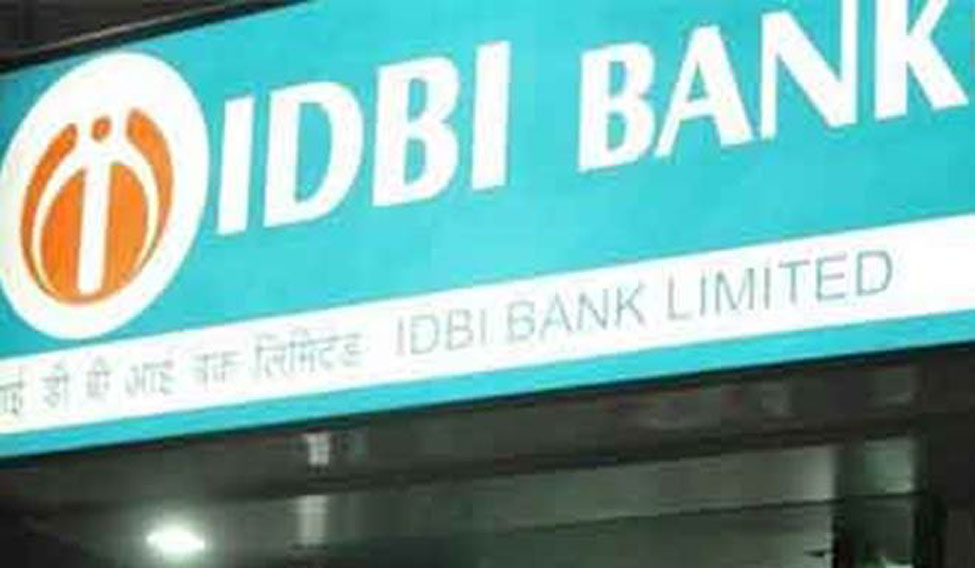Even as the wider equity markets scaled new highs on Wednesday, shares of IDBI Bank plunged four per cent after the Reserve Bank of India (RBI) invoked its prompt corrective action (PCA) framework on the government-owned lender following a surge in its non-performing assets and negative return on assets.
At 14:00 hrs, IDBI Bank was trading at Rs 78.70, down 3.9 per cent on the BSE, while the wider Sensex was up 255 points or 0.9 per cent at 30,188.56 points.
Under the PCA framework, there will be restrictions on the bank's business activities, including curbs on lending and branch expansion.
The central bank has been after the banks to clean up their balance sheets. Effective April 1, 2017, RBI had revised the provisions of the PCA framework based on the financials of the banks for the year ended March 31, 2017.
IDBI Bank finds itself under the PCA watchlist as its bad loans have worsened. In the quarter ended December 31, 2016, the bank reported a huge net loss of Rs 2,255 crore. For the year-ended March 2016, it had reported a loss of Rs 3,665 crore.
Its gross non-performing assets as on December 31, 2016 stood at Rs 35,245 crore or 15.16 per cent of gross advances, up from gross NPA of Rs 30,134 crore or 13.05 per cent at the end of September 2016 and Rs 19,615 crore or 8.94 per cent at the end of December 2016.
Similarly, its net NPAs have also more than doubled year-on-year to Rs 20,949 crore or 9.61 per cent of advances at the end of December 31, 2016 from Rs 9,612 crore or 4.60 per cent of advances, at the end of December 2015.
Its return on assets on an annualised basis at the end of the December quarter were -2.32 per cent.
There have already been some measures taken by the bank and the government to turn around the ailing lender. In March, Mahesh Kumar Jain, the MD and CEO of Indian Bank was appointed as the new MD and CEO of IDBI Bank, while IDBI Bank's MD and CEO Kishor Kharat moved to the Indian Bank as the MD and CEO. In February, its board had approved a proposal to sell some of the non-core investments of the bank.
Under the revised PCA framework, the lender's capital, asset quality and profitability will continue to be the key areas that will be monitored, including the net NPA ratios and return on assets.
The PCA framework is applicable without exception to any bank operating in India, including foreign banks operating through branches or subsidiaries, based on the breach of the risk thresholds.
Depending on the severity, several measures are imposed on the particular lender. For instance, it has to undertake a detailed review of business model in terms of sustainability of the business model, profitability of the various business lines and activities, medium and long-term viability, among other things.
It will have to review short-term, medium-term business plans, identify achievable targets and set milestones for progress. A bank may also have to review all of its business lines to identify scope for enhancement or contraction, the revised PCA guidelines state.
The RBI can also initiate a change in management and to supersede the board, while also imposing restriction on the compensation of the management and board of directors.
There are also several capital-related actions that a lender may have to take if PCA is invoked. For instance, it will have to submit plans and proposals for fresh capital raising, the bank will have to bolster reserves through retained profits and there will be restriction on investment in subsidiary companies.
IDBI Bank said while the RBI has initiated PCA, it will not impact its performance.
“This action will not have any material impact on the performance of the bank and will contribute to improving the internal controls of the bank and improvement in activities,” the lender said.
Earlier this month, Crisil had downgraded its ratings on several tier-II bonds and infrastructure bonds issued by IDBI Bank to 'AA-/negative' from 'AA/negative'.
“The downgrade of the bank's ratings is due to deterioration in asset quality and profitability and expectation of continued high slippages over the next couple of quarters,” the ratings agency had said.
Another ratings agency Care has also downgraded its rating on IDBI Bank's lower tier-II bonds from 'AA' to 'AA-', citing the bank's operational and financial performance.






